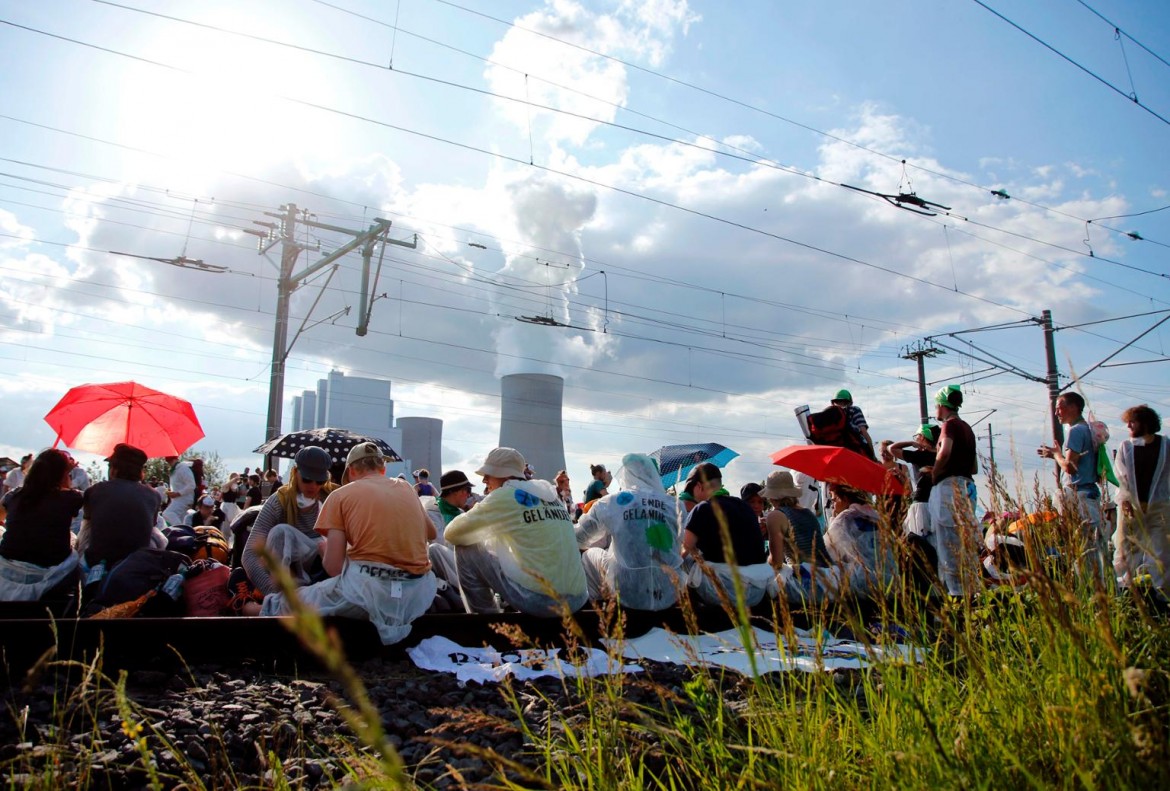Germany is set to abandon coal for good, by 2038 at the latest, with the eight most outdated power stations to be shut down by the end of December of this year, while the plant operators will enjoy multi-billion-euro windfalls in the form of compensation for costs and lost revenue.
This will be achieved thanks in particular to the money that will come in from the Green Deal just launched by Brussels, which will turn Germany into the largest beneficiary of European climate funds, together with Poland.
These were the terms of the agreement concluded late Thursday night between the Merkel government and the German federal states that are still dependent on the most polluting kinds of fossil fuels. The agreement, which comes into effect “immediately and in a binding manner,” will be put to a vote in the Bundestag at the latest before the summer break.
In the document, signed by Vice Chancellor and Finance Minister Olaf Scholz and Environment Minister Svenja Schulze, the “setting aside” from the federal budget of €2.6 billion for energy companies in the western regions and €1.7 billion for the eastern regions is closely tied to the curbing of the extraction of lignite, sometimes known as brown coal, and comes with the condition that the plants must close by the end of this decade.
“These were very tough negotiations, and, in my view, too long, but the result of the agreement is positive: Germany will be the first country to move away from nuclear power and coal in a binding manner,” Schulze said. The CDU Economy Minister, Peter Altmaier, a figure very close to Merkel, promised a fast parliamentary process for the approval of the special law: “It will be presented in the [Bundestag] as early as by the end of the month.”
This is an era-defining change. In 2019, coal still accounted for 19.8% of the Bundesrepublik’s energy production (down from over 24% in the last two years), while the agreement with the operators of ultra-polluting power plants has been signed at a time when Germany is struggling with the lowest growth of the last five years, and the industry crisis is threatening the service sector.
The achievement is due to pressure from the environmental movements: from Fridays for Future, Greenpeace and Germanwatch, which were ready to denounce the government before the Constitutional Court, to the Greens party, who have solidified a strong second place in the polls after Merkel’s CDU.
But that’s not all: at least as important were the €40 billion for decarbonization announced by the government in August 2019, and the new financial leverage mechanisms set up by the European Union, which truly seems to have tailored the €7.4 billion environmental “Transition Fund” for Berlin’s needs.
European Commission President Ursula von der Leyen’s timetable, which has just been approved by the European Parliament, projects a 55% reduction in CO2 emissions by 2030. This fits well with the “accelerated schedule” that the German Environment Minister spoke about on Thursday, whose clear aim is to force faster progress through the stages of Germany’s exit from carbon.
“[Carbon] could be phased out within 15 years if the two fact-checks planned for 2026 and 2029 confirm the completion of the stages of the phase-out,” Schulze said.
This accelerated process is partly reflected in the closure of eight old power stations as early as the end of 2020. These are owned mainly by Rheinisch-Westfälisches Elektrizitätswerk (RWE) in Essen, which also owns the Garzweiler mining complex, Europe’s most polluting surface mine.
In return, the Ministry of Finance will compensate the power plant operators over a fixed period of 15 years, while plants such as Datteln-IV along the Rhine, which is completing the initial testing period for its “latest generation” coal cycle, will represent a buffer solution until the final exit.
All in all, it was a compromise—but one with the merit of setting clear dates for the shutdown of the other very old power plants beside the obsolete plants in the Rhineland, found, among other places, in Eastern Saxony, Saxony-Anhalt and Brandenburg. These will be decommissioned between 2028 and 2034.
In Germany, the future means “the massive expansion of wind and solar energy,” according to the Environment Minister (SPD). It was for this purpose that the government approved the “structural law” last summer, which allocates €14 billion to the mining regions of Lusatia in the east of the country (which will receive more than 40% of the funds) and the mining areas of the central-western regions.

